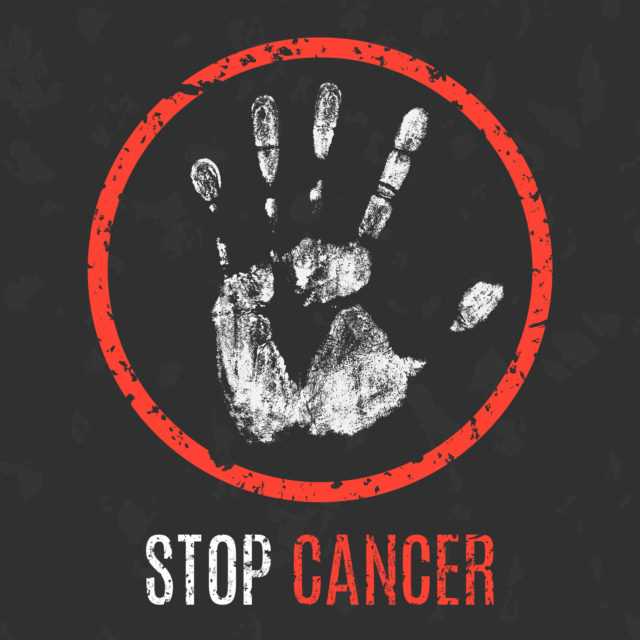
Cancer is a serious public health issue, accounting for nearly 10 million deaths and over 19 million new cancer cases around the world in 2020. The WHO estimates that the number of new cancer cases will increase to nearly 29 million in 2040. This alarming statistic is indicative of the huge focus and investment that will flow into oncology worldwide.
What are the objectives of digital health technologies in the journey of the cancer patient?
Innovative Digital Health solutions have the potential to revolutionize each step of the cancer patient journey. The approach is a shift towards data-centric solutions aimed to complement manual intervention and judgments in areas critical to patient outcomes. The cancer patient journey and the associated potential digital health objectives look as follows:
- Symptom and screening awareness
Early recognition of cancer symptoms, adherence to cancer screening, and potential genetic testing is of great importance to optimize the outcomes of cancer treatment. A broader awareness of comprehensive information among doctors and patients can be promoted through counseling and education campaigns leveraging digital technologies.
Great examples of public campaigns raising awareness of the potential cancer symptoms and cancer screening options leveraging digital channels are UK NHS’ “Be Clear on Cancer” and “Help Us Help You”.
- Improving accuracy and speed of cancer diagnosis
Healing starts with finding. People diagnosed earlier with cancer are not only more likely to have better treatment outcomes, but importantly also improved quality of life during treatment, and potentially improved post cancer life compared with those diagnosed later. Accurate diagnosis and a quicker start of treatment can also significantly reduce the cost and complexity of cancer therapy.
The application of AI to biomarker data has the potential to revolutionize cancer diagnosis by improving the accuracy and speed of diagnosis since AI allows to effectively analyze complex data from many modalities.
- AI-based imaging solutions in cancer diagnosis
In many cases, cancer diagnosis is done through imaging techniques like x-ray, CTI, MRI, PET and others. AI-based software are gaining rapid adoption in supporting clinicians in cancer diagnosis, staging, tumor observation, complexity assessment, surgical procedure and pathology among others.
Product examples on AI-based imaging solutions in cancer diagnosis

Source: https://www.kheironmed.com/, https://quant-insight.com/, https://www.botimageai.com/, https://global.infervision.com/
- AI-based biopsy solutions in cancer diagnosis
AI-driven, precision pathology is another component with great potential to significantly increase diagnosis accuracy and speed in diagnosis. Digital biopsy solutions are transforming the entire biopsy process including image analysis, case management, image digitization, interoperability, reporting, and sharing among cancer diagnostics.
Product examples on AI-based biopsy solutions

Source: http://www.deepbio.co.kr/, https://indicalab.com/, https://www.imagene-ai.com/, https://www.mindpeak.ai/
- Digital PCR solutions for liquid biopsy in cancer diagnosis
Non-invasive cancer diagnosis solutions are a rising alternative to invasive cancer biopsies. The technique uses body fluids like blood samples, urine, saliva, stool, and sputum instead of tissues, for diagnosis. Such techniques allow to quantify multiple genetic markers and multiple tests from a single sample, making the diagnostic process simpler.
Product examples of liquid biopsy solutions

Source: https://www.thermofisher.com/, https://www.sophiagenetics.com/, https://exai.bio/
- Digital outcome prediction for cancer treatment decision
When choosing a suitable oncology treatment plan, it is important to consider which therapy is particularly promising in each individual case. Predictions based on clinical and molecular cancer data whether a tumor is likely to be responsive has great potential to optimize the clinical cancer treatment decision-making process in the future.
Product examples of digital treatment outcome prediction

Source: Company websites – https://owkin.com/, https://www.icr.ac.uk/news-archive/ai-test-could-predict-effective-cancer-drug-combinations-in-less-than-two-days, https://www.domorediagnostics.com/
- Digital solutions for patient management and monitoring
The treatment phase in oncology is usually characterized by repetitive therapies which are often accompanied by strong and unpleasant side effects. The use of Digital Health technologies can make an immense contribution to empower patients and reduce the treatment burden. At the same time, such solutions enable clinicians to improve personal patient treatment plans for optimized outcomes and sustain an acceptable quality of life level.
Patient management and monitoring solutions are comprised of telemedicine devices, tracking sensors, and patient reporting portals. Telemedicine serves as a lifeline for the care cancer patient needs. Real-time biometrics or vital signs data collected by wearable sensors provide clinicians the necessary insights into the patient’s health status and quality of life. Patient management portals are digital solutions where patients report their problems in real-time, get assistance and treatment advice. In addition, there are self-care applications helping patients to manage their diet, exercise, sleep, medication, and mental health.
Product examples of cancer patient management and monitoring solutions

Source: https://www.globalmed.com/, https://www.pdiarm.com/, https://oncohealth
Product examples of cancer self-management solutions

Source: https://attunerx.com/, https://www.medisafe.com/, https://www.vinehealth.ai/
- Digital post-cancer symptom management solutions
Ideally, the cancer progression for the patient can be prevented, or the cancer can even be eliminated. However, even after the successful cancer treatment, there are post cancer symptoms that need to be managed. Chronic fatigue is one of the most common problems among the cancer survivors affecting individuals’ social, occupational, and general functioning, and may lead to a considerably reduced quality of life.
Product examples of post-cancer symptom management solutions

Source: https://untire.me/, https://www.behaviouralsciencesunit.org/ibounce.html
Summary and outlook
The digital future of oncology across the patient journey has great potential. Digital Health solutions addressing effective cancer symptom/screening awareness in combination with technologies that improve accuracy and speed through a data-centric diagnosis, support the individualization and tailoring of treatment decisions, and provide continuous patient monitoring data to optimize treatment plans, promise significantly reduced cancer death rates.
In addition, cancer management technologies have the potential to improve treatment experience, safety, and patient-clinician interactions and can result in improved patient quality of life during and after cancer treatment.
However, despite some promising Digital Health solutions associated with oncology today, as a field it is still in its infancy. A coordinated effort will be needed to build a viable path toward clinical validation, integration, and adoption of these Digital Health solutions into routine clinical practice.
Editor’s Note: The author submits that he doesn’t have any business relationships with the companies mentioned in the article. He is also not aware of any financial connections between the companies and Novartis within his role in Novartis.
Photo: Main_sail, Getty Images







